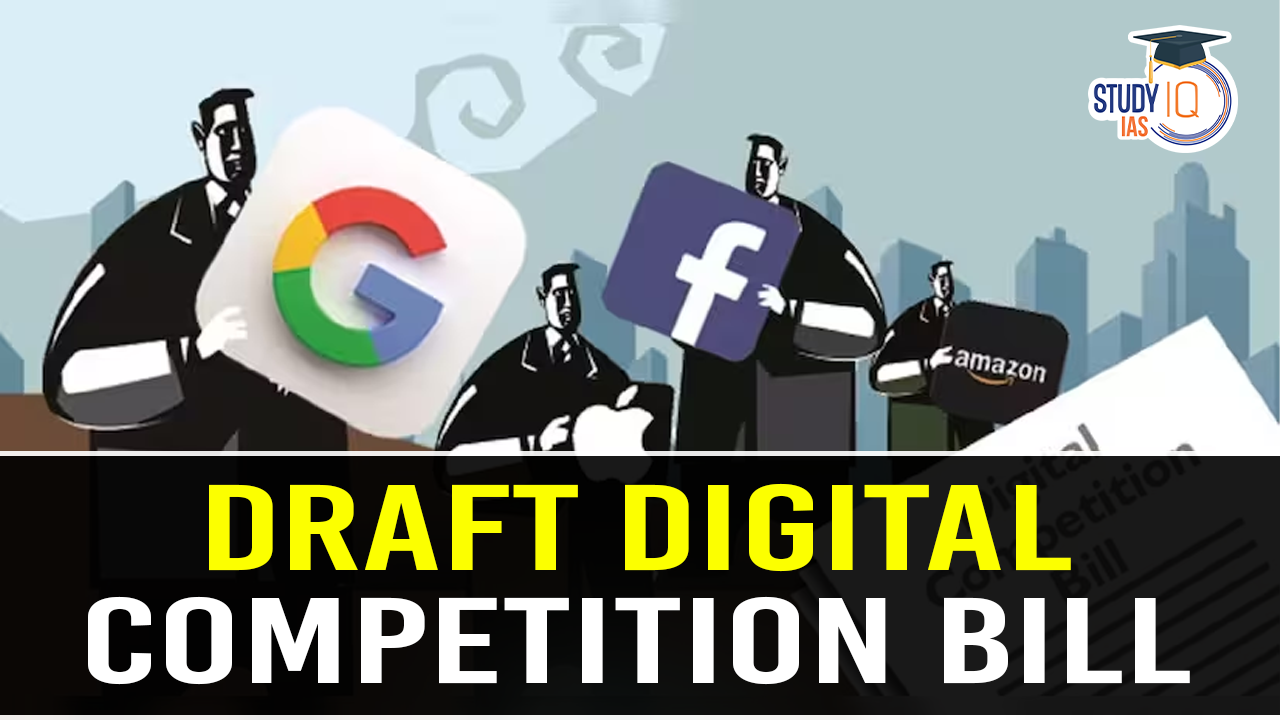Table of Contents
Context: India proposed a new law, taking inspiration from the European Union‘s regulatory framework, to curb anti-competitive practices by tech giants such as Google, Facebook, and Amazon.
Key Proposals Of Draft Digital Competition Bill
- Aim: To stop these companies from self-preferencing their services or using data from one company to benefit another within the same group.
- Predictive Regulation:
- The Bill proposes an ex-ante framework, a forward-looking and preventive law that addresses potential antitrust issues before they occur.
- This approach aims to curb market abuse proactively, unlike the current ex-post framework under the Competition Act, of 2002, which regulates the incidence of market abuse.
- Significant Entities:
- The Bill suggests that the Competition Commission of India (CCI) should designate companies providing core digital services as “Systematically Significant Digital Enterprises (SSDE)” based on parameters like turnover, user base, and market influence.
- SSDEs are prohibited from practices like self-preferencing and anti-steering, with fines up to 10% of their global turnover for violations.
| Quantitative Criteria for SSDE Designation |
|
Associate Digital Enterprises (ADEs):
- ADEs are group entities that benefit from data collected by the main company and would have the same obligations as SSDEs based on their involvement in core digital services.
- Example: Google Maps benefiting from Google Search data or YouTube recommendations influenced by Google Search data.
Need for the Digital Competition Bill
- Government officials emphasise the history of anti-competitive practices by big tech companies.
- The new law aims to lower market barriers for new entrants and foster innovation beyond the dominant players.
- Example:
- Google was fined ₹1.337 crore by the CCI for anti-competitive conduct in the Android ecosystem.
- Apple could be required to allow third-party app stores on iPhones.
- Google and Apple have advocated against sideloading apps due to security concerns.
Criticism of the Draft Digital Competition Bill
- Industry Concerns:
- Tech companies and industry bodies argue that the ex-ante framework could impose significant compliance burdens and shift focus from innovation to regulatory adherence.
- Critics advocate strengthening the current competition law instead of moving to an ex-ante framework.
- Potential Impact:
- Compliance with the new law might require tech giants like Apple to allow third-party app stores on iPhones, which Apple has opposed.
- Google argues that sideloading apps outside their store could pose security risks.
- Broad Definitions:
- The draft’s broad definitions for significant platforms and the CCI’s discretionary power to designate SSDEs raise concerns about arbitrary decision-making and potential impacts on startups.
- Companies worry that changes to data-sharing practices might affect smaller businesses relying on their platforms for outreach.


 Pariksha pe Charcha 2025, Overview, Even...
Pariksha pe Charcha 2025, Overview, Even...
 National Policy on Framework on Agricult...
National Policy on Framework on Agricult...
 How Scientists used Scotch tape to Creat...
How Scientists used Scotch tape to Creat...




















